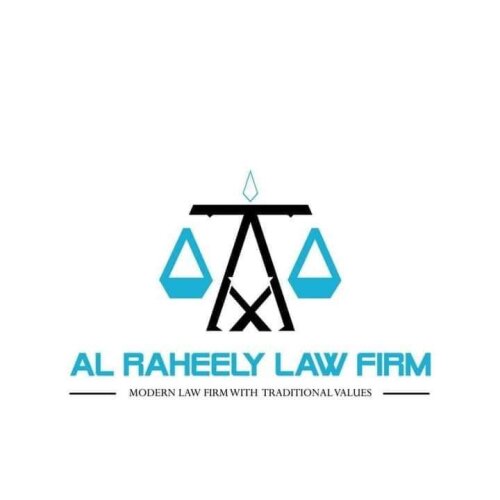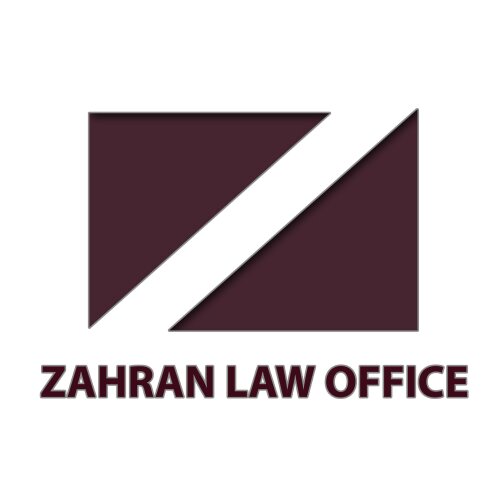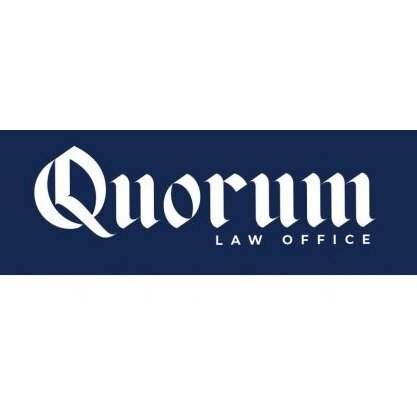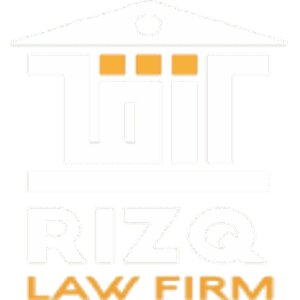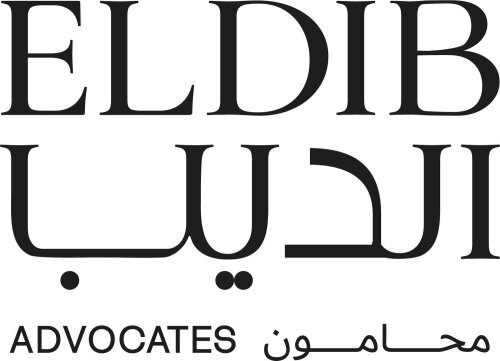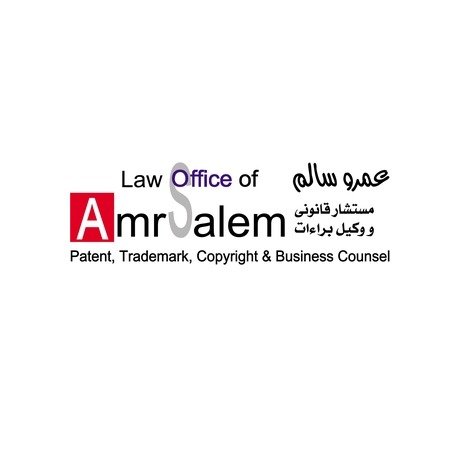Best Mining Law Lawyers in Egypt
Share your needs with us, get contacted by law firms.
Free. Takes 2 min.
Or refine your search by selecting a city:
List of the best lawyers in Egypt
About Mining Law in Egypt
Mining Law in Egypt governs the exploration, extraction, and management of natural mineral resources such as gold, phosphate, sand, limestone, and other valuable materials found within Egyptian territory. These laws form a critical framework for regulating the mining sector, balancing economic development with environmental and social responsibility. The primary legislation is found in the Mineral Resources Law No. 198 of 2014 and its executive regulations, which set the foundation for licensing, agreements, and operational standards for both local and foreign investors involved in mining activities.
Why You May Need a Lawyer
There are many situations where legal advice or representation is crucial in the field of Mining Law in Egypt. Some of the most common scenarios include:
- Applying for exploration or extraction licenses
- Drafting and negotiating mining agreements and contracts
- Navigating government procedures and regulatory compliance
- Handling disputes related to land use, taxes, or royalties
- Understanding environmental and safety regulations
- Advising on joint ventures, mergers, or acquisitions in the mining sector
- Ensuring compliance with labor laws related to mining operations
- Dealing with termination or revocation of mining rights
- Protecting intellectual property in mining technologies
- Managing community relations and social impact matters
An experienced mining lawyer can help clarify complex legal requirements, mitigate risks, and protect your rights and interests throughout every stage of a mining project.
Local Laws Overview
Mining in Egypt is primarily regulated by the Mineral Resources Law No. 198 of 2014 as amended, together with its executive regulations. Key aspects of the local laws include:
- Licensing and Concessions: All mining activities require a license or concession issued by the Egyptian Mineral Resources Authority (EMRA) or the relevant governorate. Licenses are typically granted through a competitive bidding process.
- Ownership and Rights: The Egyptian state owns all mineral resources. Entities may obtain the right to exploit these resources based on terms set out in the law and their specific contracts.
- Royalties and Taxes: Mining operators must pay royalties on extracted minerals, which vary depending on the resource, along with income taxes. Law sets minimum and maximum royalty rates.
- Environmental Protection: Compliance with environmental impact assessments and mitigation measures is required before and during mining operations to minimize harm to natural resources and local communities.
- Foreign Investment: Foreign entities can participate in mining activities, but must comply with local content and operational requirements, and some restrictions may apply depending on the type of mineral and location.
- Dispute Resolution: Disputes are typically subject to Egyptian jurisdiction, but arbitration clauses can be included in contracts for international investors.
- Community and Labor Standards: Operators must adhere to labor laws, health and safety regulations, and maintain transparent relations with local communities.
Frequently Asked Questions
What is the main regulatory body overseeing mining in Egypt?
The Egyptian Mineral Resources Authority (EMRA) is the primary government body responsible for regulating and overseeing mining activities across Egypt.
Can foreign companies obtain mining licenses in Egypt?
Yes, foreign companies are eligible to apply for mining licenses in Egypt, often through competitive tenders, but must comply with specific legal and regulatory requirements.
What types of mineral resources are covered under Egyptian Mining Law?
The law covers a wide range of mineral resources, including gold, phosphate, limestone, granite, sand, clay, and other industrial and metallic minerals.
What is the procedure to obtain a mining license in Egypt?
The process involves submitting a formal application to EMRA, participating in a competitive bid if required, and undergoing environmental and technical evaluations before formal approval is granted.
Are there environmental obligations for mining operators?
Yes, all operators must conduct environmental impact assessments and implement approved environmental management plans as part of their licensing conditions.
How are royalty rates determined in Egypt?
Royalty rates are set by law, with rates varying according to the mineral type and specified in the license agreement, subject to minimum and maximum thresholds defined by regulation.
Can mining licenses be transferred or inherited?
Generally, mining rights cannot be transferred without prior government approval. Any transfer or inheritance must be in compliance with the relevant laws and regulations.
What are the penalties for illegal mining in Egypt?
Illegal mining activities can result in heavy fines, confiscation of extracted materials, termination of licenses, and potential criminal prosecution, depending on the severity of the offense.
What recourse do companies have in the event of a dispute?
Disputes may be resolved through negotiation, mediation, or litigation within Egyptian courts. International companies often seek the inclusion of arbitration clauses in their agreements.
Are there special incentives for investors in the mining sector?
Egypt periodically offers incentives, such as tax breaks or reduced royalty rates, to encourage investment in designated mining areas or for strategic minerals, subject to government approval.
Additional Resources
If you are seeking more information or direct assistance, consider these helpful resources:
- The Egyptian Mineral Resources Authority (EMRA)
- Ministry of Petroleum and Mineral Resources
- Egyptian Environmental Affairs Agency (EEAA)
- Egyptian Geological Survey
- Chambers of Commerce and Industry with mining divisions
- International law firms with mining expertise in Egypt
- Local mining associations and industry networks
Next Steps
If you need legal assistance in the field of Mining Law in Egypt, consider the following steps:
- Gather all relevant documents and details about your mining project or concern
- Contact the Egyptian Mineral Resources Authority for initial guidance or official procedures
- Consult with a qualified Egyptian lawyer experienced in Mining Law to understand your legal obligations and rights
- Review your business goals and contracts with your lawyer to identify potential risks or compliance issues
- Stay updated on any changes to local mining regulations or incentives that could affect your project
- Prepare for negotiations, government submissions, or dispute resolution with the support of your legal advisor
Taking these steps will help you navigate the complexities of Egypt’s Mining Law and protect your interests in the mining sector.
Lawzana helps you find the best lawyers and law firms in Egypt through a curated and pre-screened list of qualified legal professionals. Our platform offers rankings and detailed profiles of attorneys and law firms, allowing you to compare based on practice areas, including Mining Law, experience, and client feedback.
Each profile includes a description of the firm's areas of practice, client reviews, team members and partners, year of establishment, spoken languages, office locations, contact information, social media presence, and any published articles or resources. Most firms on our platform speak English and are experienced in both local and international legal matters.
Get a quote from top-rated law firms in Egypt — quickly, securely, and without unnecessary hassle.
Disclaimer:
The information provided on this page is for general informational purposes only and does not constitute legal advice. While we strive to ensure the accuracy and relevance of the content, legal information may change over time, and interpretations of the law can vary. You should always consult with a qualified legal professional for advice specific to your situation.
We disclaim all liability for actions taken or not taken based on the content of this page. If you believe any information is incorrect or outdated, please contact us, and we will review and update it where appropriate.
Browse mining law law firms by city in Egypt
Refine your search by selecting a city.



